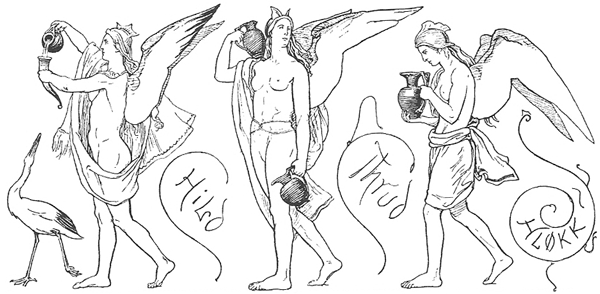Valhalla
In Norse mythology, Valhalla (from Old Norse Valhöll "hall of the slain" is a majestic, enormous hall located in Asgard, ruled over by the god Odin. Chosen by Odin, half of those who die in combat travel to Valhalla upon death, led by valkyries, while the other half go to the goddess Freyja's field Fólkvangr.
In Valhalla, the dead join the masses of those who have died in combat known as Einherjar, as well as various legendary Germanic heroes and kings, as they prepare to aid Odin during the events of Ragnarök. Before the hall stands the golden tree Glasir, and the hall's ceiling is thatched with golden shields. Various creatures live around Valhalla, such as the stag Eikþyrnir and the goat Heiðrún, both described as standing atop Valhalla and consuming the foliage of the tree Læraðr.
"Walhalla" (1896) by Max Brückner
Valhalla is attested in the Poetic Edda, compiled in the 13th century from earlier traditional sources, the Prose Edda, written in the 13th century by Snorri Sturluson, Heimskringla, also written in the 13th century by Snorri Sturluson, and in stanzas of an anonymous 10th century poem commemorating the death of Eric Bloodaxe known as Eiríksmál as compiled in Fagrskinna. Valhalla has inspired various works of art, publication titles, popular culture references, and has become a term synonymous with a martial (or otherwise) hall of the chosen dead.
A Valkyrie, drinking horn in hands, awaits at the gates of Valhalla on the Tjängvide image stone from Gotland, housed at the Swedish Museum of National Antiquities in Stockholm, Sweden ... read more
Three valkyries bearing ale in Valhalla (1895) by Lorenz Frølich.
Wagner - RIDE OF THE VALKYRIES - Furtwangler
